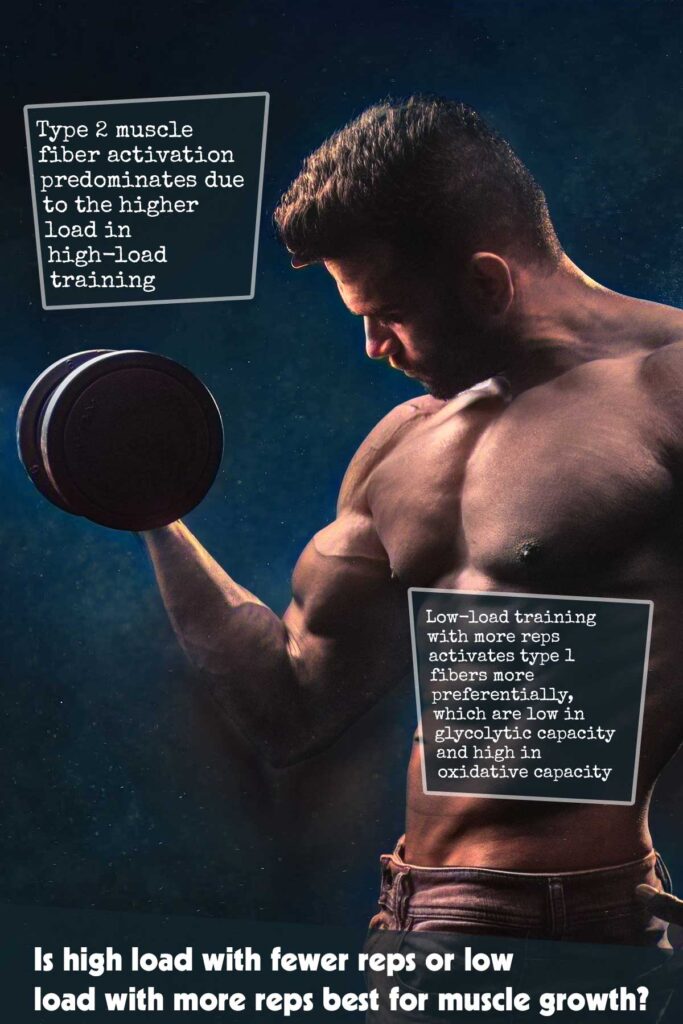As per a study, different forms of resistance training – be it high load with few repetitions or low load with more reps – don’t make any significant differences when it comes to muscle growth promotion.
This eight-week study involved 18 participants across two training protocols: high-load exercises with few reps vs low-load exercises with many reps; muscle mass was assessed after both initial and final exercise sessions.
No significant differences were seen in metabolic stress or muscle growth when both groups were evaluated by measuring compounds released into the bloodstream from exercise.
Participant lifted up to 80% of their bodyweight in the high-load group; for low-load exercises, however, this limit was 30%; exercises continued until their muscles could no longer support lifting it.
Resistance training promotes muscle growth, yet its exact mechanism remains unknown. According to one study, both forms have equal impact.
Researchers also demonstrated that each muscle activates in its own way, even though metabolic stress remains consistent and its impact on hypertrophy remains similar across species.
Assessments conducted prior and following both exercise sessions involved taking blood samples before, 5 minutes after, and an hour after beginning or concluding each workout session, using metabolomics analysis for detection of any potential metabolites present in their blood samples.
Surface electromyography was utilized to assess muscle activation; electrodes monitored the real-time electrical activity within muscle fibers.
At first, it seemed likely that those in the low-load group would exhibit a stronger metabolic stress response; after all, theoretically the additional stress should have cancelled out reduced muscle activation levels; but that did not turn out to be true.
Analysis revealed that, although muscle activation levels were higher among participants of high-load training, metabolic stress levels in both groups were comparable, suggesting both types of training might lead to hypertrophy by acting on similar pathways.
Variations was detected among 50 blood metabolites as they responded to muscle activation during both types of training. Although only some metabolites differed between groups, six were selected and analyzed: phosphocreatine, creatine, carnitine, acetoacetate, 3-hydroxyisovalerate and asparagine.
Even though no differences were discovered in terms of general metabolic response, correlations were observed between certain metabolites and muscle hypertrophy across both groups. Some may have been caused by exercise activating type 1 or 2 muscle fiber characteristics as well as training protocol metabolic demands in this study.
Some of the metabolites examined come from anaerobic energy systems and come from muscle glycolysis or the breakdown of phosphocreatine and creatine, providing sufficient energy to sustain exercise intensity for several seconds.
Acetoacetate and asparagine are linked primarily with the Krebs cycle, which utilizes oxygen along with nutrients like carbohydrates, proteins, and fat to produce energy for longer lasting muscle energy production.
Phosphocreatine and creatine expression were expected to show greater response in anaerobic exercise, reflecting its metabolic signature of type 2 muscle fiber known as fast twitch fiber, while asparagine could potentially appear when more respiratory activity activates the Krebs cycle – characteristic of type 1 fibers.
As the higher load in high-load training increases, type 2 muscle fiber activation prevails over type 1. These low-oxidative but high-glycolytic activity fibers could potentially be more hypertrophy responsive compared to type 1. However, low-load training with more reps activates type 1 fibers more strongly since they possess low glycolytic capacities and high oxidative capacities for fatigue resistance.

